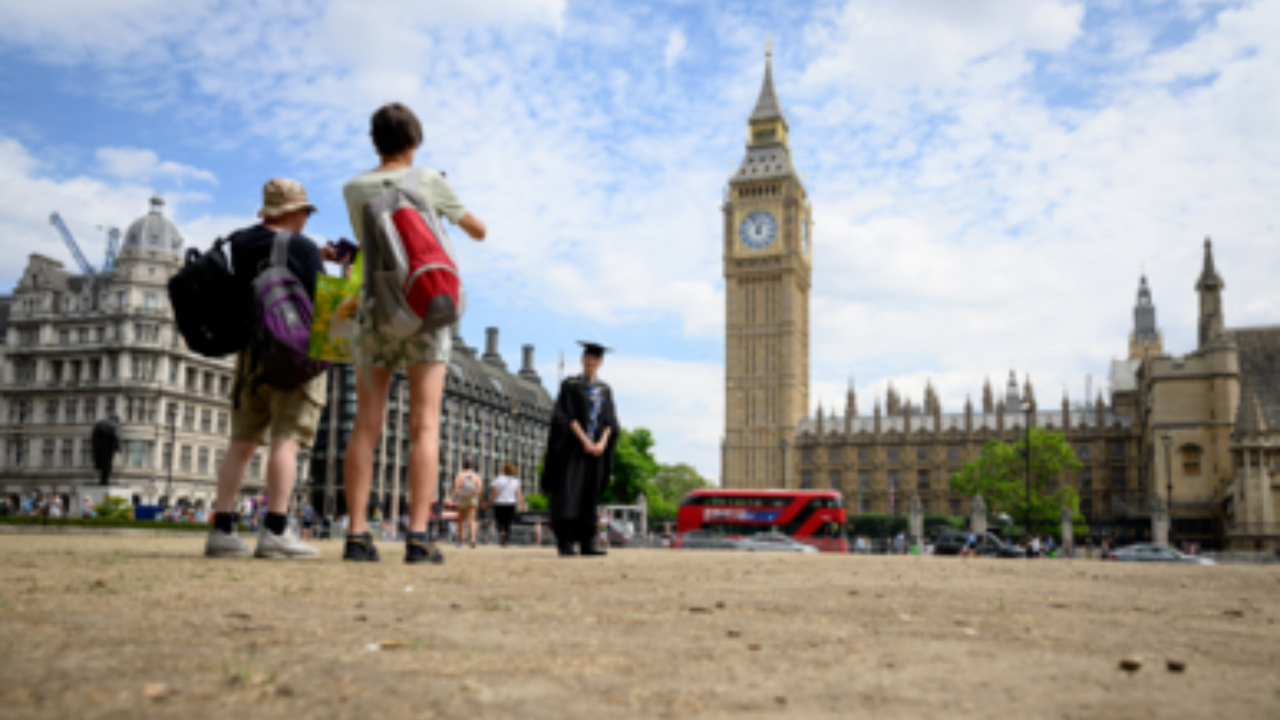LONDON: A total of 296 Indian students living in India who studied in the UK between 2017 and 2022 have joined a class action against their British universities over the disruption they faced during the Covid pandemic and university lecturer strikes.
If successful, the students, who paid up to £40,000 per year to study in Britain, stand to win tens of thousands of pounds in compensation each for the difference in what was provided — an online course, and what was promised — in person teaching and access to physical facilities.
Arunima Ghosh is one of more than 110,000 domestic and international students who have instructed law firms Harcus Parker and Asserson, via the website StudentGroupClaim.co.uk, to seek compensation. Hundreds of thousands more students are expected to join the Student Group Claim. The students are arguing that they paid full fees for a university experience that they did not receive, and that universities breached their contracts with the students.
Ghosh paid for her MSc in applied bioscience by offering her home as collateral against a loan. She was researching the effects of chemotherapy on cancerous cells but the university closed the labs during the pandemic. Now, when she applies for top jobs, they ask for an example of an experiment. “I have nothing,” she said. European students were permitted to use the labs the following year for their projects but she was told her visa could not be extended. “I paid all this money and received nothing that was promised,” she said.
“Indian nationals are probably the second-largest client base for us in this case,” said partner at Harcus Parker Ryan Dunleavy. “Around 300 have returned to India but there are probably several thousand more Indians in other countries taking part in the claim. These Indian students spent an awful lot of money and got very little back for it and feel very disgruntled. In 2020 to 2021 teaching was shunted online in a haphazard manner and physical facilities were largely removed, yet they were paying these huge international fees to be given a correspondence course.”
The first high court hearing took place on May 24 this year against University College London (UCL). To date 17 other UK universities have been sent letters before action.
A spokesperson for Universities UK said: “We are proud of how universities adapted and managed in adverse circumstances.” Professor Kathleen Armour of UCL said: “Our staff worked tirelessly to make all UCL premises as safe as possible and ensured a high-quality academic experience.”
If successful, the students, who paid up to £40,000 per year to study in Britain, stand to win tens of thousands of pounds in compensation each for the difference in what was provided — an online course, and what was promised — in person teaching and access to physical facilities.
Arunima Ghosh is one of more than 110,000 domestic and international students who have instructed law firms Harcus Parker and Asserson, via the website StudentGroupClaim.co.uk, to seek compensation. Hundreds of thousands more students are expected to join the Student Group Claim. The students are arguing that they paid full fees for a university experience that they did not receive, and that universities breached their contracts with the students.
Ghosh paid for her MSc in applied bioscience by offering her home as collateral against a loan. She was researching the effects of chemotherapy on cancerous cells but the university closed the labs during the pandemic. Now, when she applies for top jobs, they ask for an example of an experiment. “I have nothing,” she said. European students were permitted to use the labs the following year for their projects but she was told her visa could not be extended. “I paid all this money and received nothing that was promised,” she said.
“Indian nationals are probably the second-largest client base for us in this case,” said partner at Harcus Parker Ryan Dunleavy. “Around 300 have returned to India but there are probably several thousand more Indians in other countries taking part in the claim. These Indian students spent an awful lot of money and got very little back for it and feel very disgruntled. In 2020 to 2021 teaching was shunted online in a haphazard manner and physical facilities were largely removed, yet they were paying these huge international fees to be given a correspondence course.”
The first high court hearing took place on May 24 this year against University College London (UCL). To date 17 other UK universities have been sent letters before action.
A spokesperson for Universities UK said: “We are proud of how universities adapted and managed in adverse circumstances.” Professor Kathleen Armour of UCL said: “Our staff worked tirelessly to make all UCL premises as safe as possible and ensured a high-quality academic experience.”
